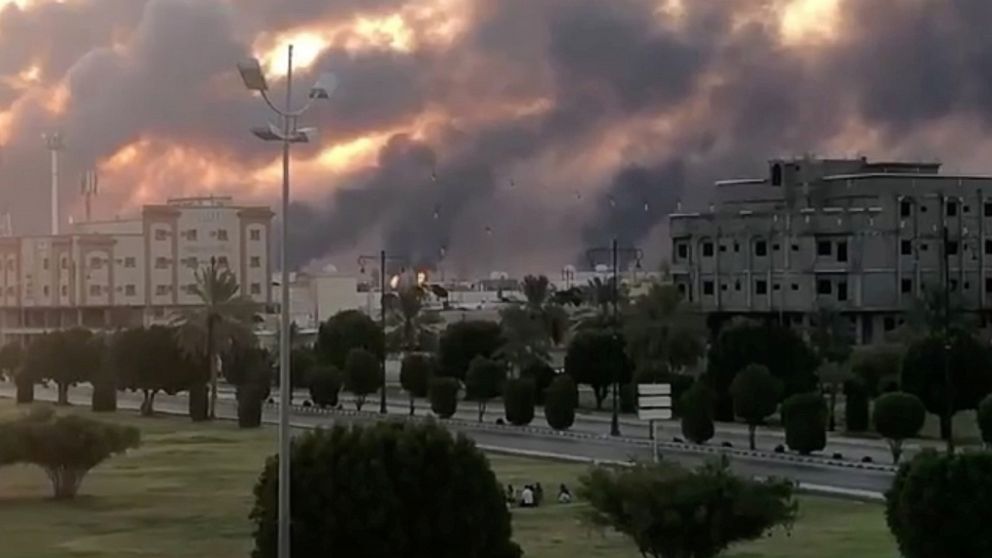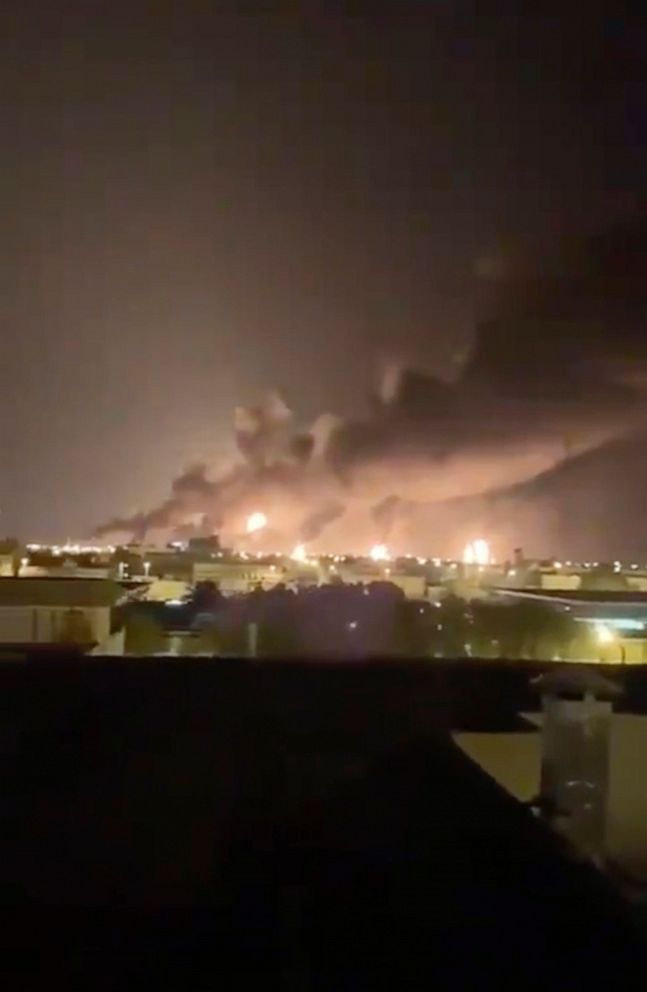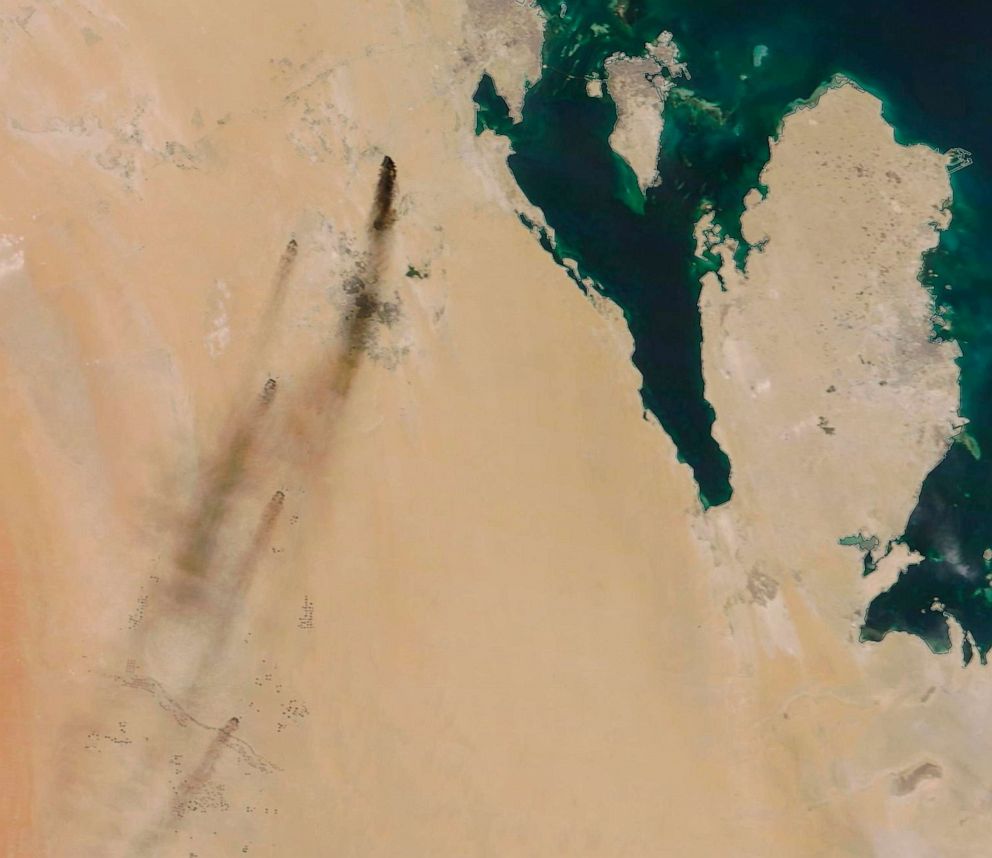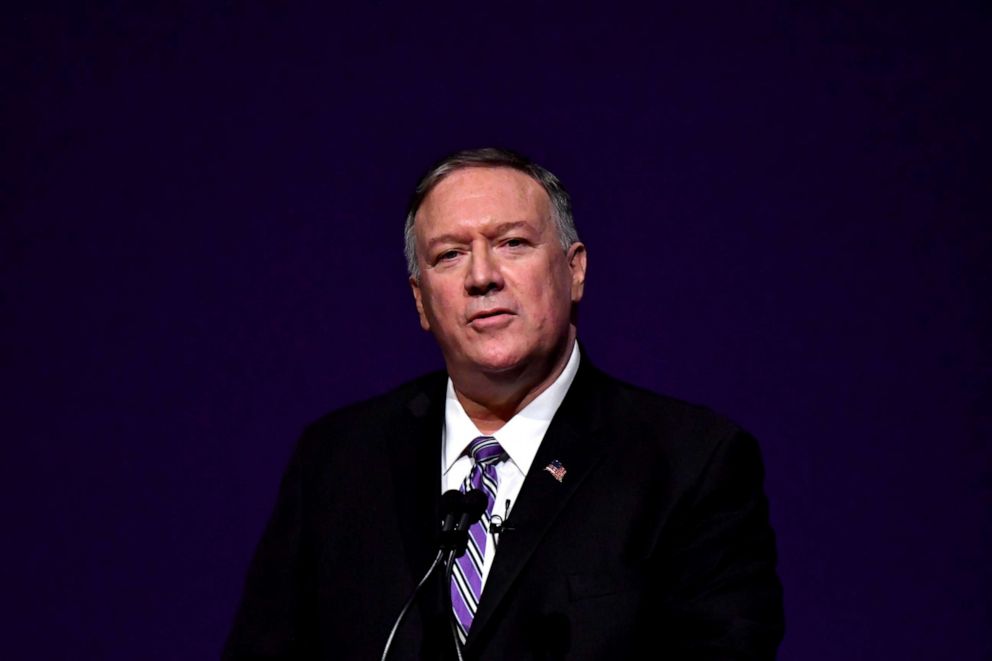Pompeo blames Iran for major attack on Saudi oil facility amid high regional tensions
President Donald Trump called the Saudi crown prince to issue U.S. support.
Secretary of State Mike Pompeo on Saturday blamed Iran for a massive attack on a critical Saudi oil facility that has put the region on high alert.
Houthi rebels in neighboring Yemen claimed responsibility for the assault, which was conducted using drones and hit the world's largest oil processing facility hundreds of miles from the Saudi-Yemen border.
Saudi Aramco, the massive state-run firm, said oil production, at least temporarily, would be reduced to about 50% capacity, a difference of approximately 5.7 million barrels per day.
A senior official told ABC News more than 20 drones were used in the strike and that Iran definitely was behind it.
"It was Iran," the senior official said. "Houthis are claiming credit for something they did not do."
President Donald Trump called Saudi Crown Prince Mohammed bin Salman Saturday "to offer his support for Saudi Arabia's self-defense," the White House said in a statement, which didn't specifically blame anyone, including Iran.

A Saudi-led coalition has been fighting against the Houthis in Yemen for over four years now after the group captured the capital Sanaa in the chaos of the country's civil war. The Houthis are backed by Iran, the Saudis' chief rival, which the Trump administration accuses of destabilizing the region and attacking oil supply chains to counter U.S. sanctions on its own oil industry.
"Amid all the calls for de-escalation, Iran has now launched an unprecedented attack on the world’s energy supply. There is no evidence the attacks came from Yemen," Pompeo tweeted.
In a video statement, Houthi spokesman Yahya Saree claimed that the rebel group carried out the drone bombings and threatened more attacks unless Saudi Arabia halted its military campaign against them: "We promise the Saudi regime that our upcoming operations will expand more and more and will be more painful than ever, so long as it continues in its assault and siege."
The Saudi-led coalition said it was still conducting an investigation into who was responsible, which could have dramatic implications for what comes next, especially if the kingdom blames Iran.
Trump's friend and ally in Congress, Sen. Lindsey Graham, R-S.C., called for the president to consider a U.S. "attack on Iranian oil refineries if they continue their provocations or increase nuclear enrichment."

But critics said the administration and its allies are distorting the reality of the conflict.
"This is such irresponsible simplification, and it's how we get into dumb wars of choice," Sen. Chris Murphy, D-Conn., said about Pompeo's tweet. "The Saudis and Houthis are at war. The Saudis attack the Houthis and the Houthis attack back. Iran is backing the Houthis and has been a bad actor, but it's just not as simple as Houthis [equal] Iran."

The Houthis have shown increasingly sophisticated capabilities to attack in Saudi Arabia, a key U.S. partner in the Middle East that the Trump administration has drawn particularly close to. Over the last few months, there have been a swarm of drone attacks and ballistic missile launches by the group, prompting more Saudi airstrikes in Yemen.
A State Department official told ABC News recently that the group was "gaining capability by the day" with new ranges, types of equipment and increased frequency and complexity of their attacks, which the official blamed on Iran's Quds Force, an elite unit in its Revolutionary Guard Corps. Iran denies supplying the Houthis with weapons, although the United Nations, other Western countries and Gulf Arab nations join the U.S. in saying Tehran does.

But the U.S. has engaged the Houthis in occasional talks in an effort to bring the brutal war, which has killed at least 91,000 and brought the country to the brink of famine, to a negotiated settlement. The State Department official said the administration is pursuing talks in hopes of peeling the Houthis away from Iran and back to a U.N.-led peace process that secured a preliminary agreement last December, but that hasn't been implemented.
"I don't know what the level of ideological affinity is among the Houthis for Iran, other than they both share a mutual antipathy toward the United States and Israel," the official said. "But I think it's important to explore it."




